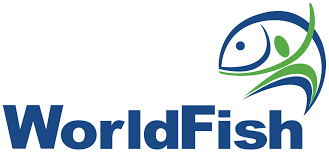
WorldFish is an international, non-profit research organization that works to reduce hunger, malnutrition and poverty by improving fisheries and aquaculture. With a 45-year track record of leading-edge science, WorldFish generates research evidence and innovations to inform sustainable practices and inclusive policies that enable better livelihoods and healthier diets for millions of poor people, particularly women, who depend on fish for food, nutrition and income.
WorldFish is a member of CGIAR, the world’s largest global partnership on agriculture research and innovation for a food-secure future. It is collaborating with IITA and ILRI to implement qualitative assessments of norms that restrict the building of resilience to climate change challenges. This work is being implemented under Workstream 2 of Work Package 1 of HER+ Initiative.
…
Also Read: Why African musicians remain poor and famous?
…
The Her + Initiative on Harnessing Gender and Social Equality for Resilience in Agri-food Systems is a CGIAR research initiative working to achieve climate resilience by strengthening gender equality and social inclusion across food systems in the Global South. The Work Package 1 (WP1) titled Transform: Gender transformative Approaches Reducing normative constraints that limit women’s economic resilience to CC challenges
The HER+ Initiative is a One CGIAR Initiative seeking to address the following four dimensions of gender inequality in agri-food systems:
- women’s lack of agency or limited ability to define and act on goals, make decisions that matter to them, and participate in the economy and public life
- women’s lack of access to and control over resources
- social norms that discriminate based on gender
- policies and governance that fail to include and benefit women
HER+ uses impactful gender research to address the four dimensions of gender inequality by applying gender-transformative approaches to address harmful norms. It does this by bundling innovations for women’s empowerment, leveraging social protection to increase women’s access to and control over resources, and promoting inclusive governance and policies for increased resilience. The HER+ Initiative will generate learning and evidence on levers and entry points to disrupt the foundations of inequality in AFSs
| Employer | WorldFish |
| Host Nation | South Africa |
| Official Website | https://worldfishcenter.org/ |
| Closing Date | 15 March 2023 |
| Eligible Candidate Qualifications | Degree |
The qualitative research workstream of WP1 seeks to answer the following research questions:
- What gender norms constrain women AFS actors from building economic resilience to CC challenges in AFS, and to what extent do these discriminatory biases exist at different institutional levels?
- What gender norms constrain women AFS actors from building economic resilience to CC challenges in AFS, and to what extent do these discriminatory biases exist at different institutional levels?
By answering these two questions, the project will identify specific leverage points and levers and design and test innovations that can help alleviate restrictive gender norms and balance power relations in ways that increase the capacities of women AFS actors to build economic resilience to CC challenges.
Purpose of the Assignment
WorldFish is soliciting competitive bids from reputable, qualified, and competent service providers/ individual international and/or national consultants to code qualitative data collected by the HER+ Initiative and partners in Nigeria and Tanzania. The data set consists of 72 Individual Interviews conducted with various stakeholders and 30 Focus Group Discussions conducted with producers, processors and traders.
Methodological Approach
The coding methodology must include both deductive and inductive approaches. Coding will start with a predefined set of codes and then assign those codes to the qualitative data. These codes will be explicitly developed to address the research questions. Inductive coding, or open coding based on qualitative data, will also inform the coding tree. Inductive coding will allow researchers to find additional insights not captured by the deductively-driven codes. The consultant or consulting team should develop a code book/ coding tree and manual, which will then be used to code all the collected data.
Requirements
- Technical Bid Evaluation Criteria
The following criteria and sub-criteria will be the basis of the selection of the successful bidder:
a) Qualifications of the service provider
- The lead consultant must possess an advanced degree (Master or PhD) in Social Science (Sociology/ Social Anthropology), Gender Studies or other Development fields
- Preference will be given to lead consultants with a deep understanding of gender. Experience with AgriFood Systems and Climate Change is an added advantage.
b) Experience
- Experience in qualitative coding data.
- Must have executed similar assignments in Nigeria, Tanzania or other countries in sub-Sahara Africa.
- Experience in developing coding trees for qualitative data and data coding using qualitative coding software such as NVIVO.
- Demonstrated experience incorporating ethical considerations related to data use, and handling.
- Track record of developing coding trees, coding data and coding gender data. The consultant must provide examples of Coding trees and manuals done in the past five years.
- Experience in leading or co-leading data coding teams.
c) Skills
- Data management and data curation.
- Data analysis and report writing.
- Fluency in written and spoken English.



